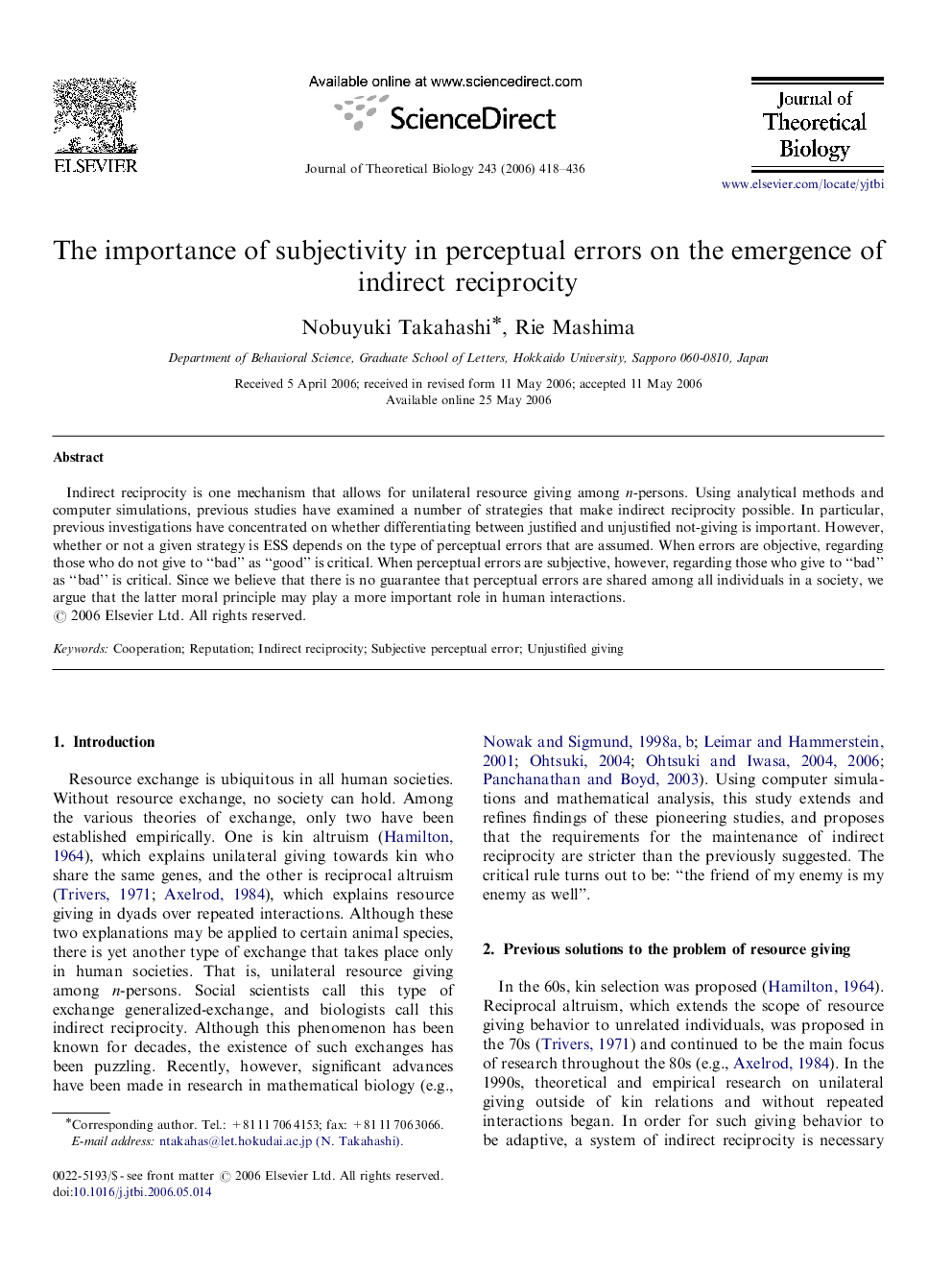| Article ID | Journal | Published Year | Pages | File Type |
|---|---|---|---|---|
| 4499215 | Journal of Theoretical Biology | 2006 | 19 Pages |
Indirect reciprocity is one mechanism that allows for unilateral resource giving among n-persons. Using analytical methods and computer simulations, previous studies have examined a number of strategies that make indirect reciprocity possible. In particular, previous investigations have concentrated on whether differentiating between justified and unjustified not-giving is important. However, whether or not a given strategy is ESS depends on the type of perceptual errors that are assumed. When errors are objective, regarding those who do not give to “bad” as “good” is critical. When perceptual errors are subjective, however, regarding those who give to “bad” as “bad” is critical. Since we believe that there is no guarantee that perceptual errors are shared among all individuals in a society, we argue that the latter moral principle may play a more important role in human interactions.
